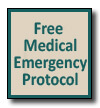From Your Regulatory Compliance – Linda Cannon; COVID-19 Newsletter 14

Staff of MSDS wish you to Stay Safe, De-Stress and Stay Active!
Linda, Anee, Saba, Nicky, Ifra and Gaetan (no photo)





MSDS Thanks all of our Clients as Dental Healthcare Providers!
Hope y’all had a wonderful Fourth of July!
Covid-19: Newsletter #14


Plant-derived COVID-19 vaccine candidate starts rolling review with Health Canada
By Rachel Arthur
Medicago has started a rolling submission with Health Canada for its plant-derived adjuvanted COVID-19 vaccine candidate: championing a unique and versatile platform that can also be scaled up easily.
The tech – which the company has honed over years with its influenza vaccine candidate – uses plants to produce protein particles for the vaccine. If authorized, the COVID-19 vaccine will become the company’s first commercial product.
Plants as ‘mini protein factories’
Founded in 1999, Quebec City’s Medicago is a pioneer of plant-derived therapeutics.
Its tech takes the idea of traditional vaccine manufacturing – based on using eggs to produce viruses – and instead uses living plants as the bioreactor that produces a protein particle that mimics the target virus.
The first step is to create the required protein particle and introduce it into a plant-specific bacterial vector. This is then taken up by plants which multiply the vector. It takes just four to six days for the ‘mini-factories to produce the Virus-Like-Particles (VLPs) – compared to around six months for egg-based production (The company highlights that plants are not genetically modified; rather, the plants’ natural cellular processes are used).
While initial experiments had used alfalfa (Medicago is the Latin word for alfalfa), today the company uses N. benthamiana plants: a relative of tobacco which has a weakened immune system meaning genetic material can be hosted rather than rejected by the plant.
‘Unleash the power of plants!’
Up to last year, the company’s frontrunner had been its influenza vaccine. Like a number of other biotechs, its focus shifted with the onset of the pandemic.
“Our work on our COVID-19 vaccine candidate started in February of 2020 where we were able to produce a VLP after just 20 days of having the genetic sequence,” Nathalie Landry, Medicago’s Executive Vice President, Scientific and Medical Affairs, told BioPharma-Reporter.
“As we had been working on other vaccine candidates, it was not difficult for us to pivot and apply the technology to our COVID-19 candidate.”
Medicago has already taken other plant-based candidates into large-scale clinical studies: and the lead quadrivalent VLP influenza vaccine is already under review with Health Canada.
However, the COVID-19 vaccine candidate is now in a position to overtake the influenza application and has the potential to become the company’s first commercial product.
The COVID-19 candidate uses Coronavirus-Like-Particle (CoVLP) technology with the vaccine composed of recombinant spike (S) glycoprotein expressed as virus-like-particles (VLPs) co-administered with GSK’s pandemic adjuvant. Two doses are administered 21 days apart (3.75 micrograms of CoVLP per dose).
A Phase 1 study of 180 healthy subjects aged 18-55 reported that the candidate ‘induced robust neutralizing antibody and cellular immune responses, with antibody levels higher after vaccination than observed in convalescent sera. The vaccine was granted Fast Track designation by the US FDA in February this year.
The publication of Phase 2 data is expected shortly.
A Phase 3 trial, which started in March, is enrolling up to 30,000 participants across 11 countries, with the company expecting to finalize the data by the end of the spring. Medicago has also initiated a feasibility study to address emerging COVID-19 variants.
Health Canada has now started to assess the data under an Interim Order rolling submission: whereby Medicago submits nonclinical sections, quality and clinical safety, and efficacy information as they become available.
If the vaccine is authorized, commercial production could then be ramped up – ultimately reaching 1 billion doses a year.
“Depending on the final dosage, we should be able to produce up to 80 million doses of the vaccine by the end of 2021,” said Landry.
“We will be able to potentially double this amount of doses by 2022. We are going to produce the COVID-19 vaccine doses at both of our sites in Quebec and in North Carolina.
“We also have a large-scale manufacturing site under construction in Quebec, which will produce about 1 billion doses per year of pandemic vaccines when completed.”
Advantages of a plant-based platform:
Canada has authorized four COVID-19 vaccines to date: Moderna and Pfizer/BioNTech’s mRNA vaccines; and AstraZeneca and J&J’s viral vector vaccines.
Landry says the plant-based platform, however, offers a unique candidate for a number of reasons. It is versatile, because of the platform’s ability to produce both vaccines and antibodies with the same platform. And it is easy to scale up manufacturing because the same growing conditions are required whether there is one plant or 10,000 plants.
In the case of influenza, Landry also highlights the platform’s accuracy: able to accurately match the recommended target strains (a mismatch between the vaccine and circulating strains of influenza can be a problem for traditionally produced vaccines: as mutations can be introduced in egg-based production).
The company is also exploring a number of other vaccine candidates for the plant-based platform: including an adjuvanted influenza candidate, pandemic flu candidate and rotavirus candidate. And then there is also the potential to develop the tech for therapeutic products beyond vaccines.
Plant-based Covid 19 vaccine Link to the full story below:
https://www.biopharma-reporter.com/Article/2021/04/27/Medicago-s-plant-based-COVID-19-vaccine-starts-Health-Canada-rolling-review
How kids’ immune systems can evade COVID

Childrens’ untrained immune response seems to be key to eliminating SARS-CoV-2.
Bianca Nogrady
How kids’ immune systems can evade COVID
Children rarely show symptoms of COVID-19, even if they are infected. Credit: Thomas Lohnes/Getty
Young children account for only a small percentage of COVID-19 infections1 — a trend that has puzzled scientists. Now, a growing body of evidence suggests why: kids’ immune systems seem better equipped to eliminate SARS-CoV-2 than are adults’.
“Children are very much adapted to respond — and very well equipped to respond — to new viruses,” says Donna Farber, an immunologist at Columbia University in New York City. Even when they are infected with SARS-CoV-2, children are most likely to experience mild or asymptomatic illness2.
Another clue that children’s response to the virus differs from that of adults is that some children develop COVID-19 symptoms and antibodies specific to SARS-CoV-2 but never test positive for the virus on a standard RT-PCR test. In one study, three children under ten from the same family developed SARS-CoV-2 antibodies3 — and two of them even experienced mild symptoms — but none tested positive on RT-PCR, despite being tested 11 times over 28 days while in close contact with their parents, who had tested positive.
Quick response
These children’s immune systems see the virus and “mounts this really quick and effective immune response that shuts it down, before it has a chance to replicate to the point that it comes up positive on the swab diagnostic test”, says Melanie Neeland, an immunologist who studied the family, at the Murdoch Children’s Research Institute in Melbourne, Australia.
Even in children who experienced the severe but rare complication called multisystem inflammatory syndrome in response to SARS-CoV-2 infection, studies report that the rate of positive results on RT-PCR range from just 29% to 50%4,5,6.
Farber says the types of antibodies children develop offer clues about what is going on. In a study7 of 32 adults and 47 children aged 18 or younger, she and colleagues found that children mostly produced antibodies aimed at the SARS-CoV-2 spike protein, which the virus uses to enter cells. Adults generated similar antibodies but also developed antibodies against the nucleocapsid protein, which is essential for viral replication. Farber says the nucleocapsid protein is typically released in significant quantities only when a virus is widespread in the body.
The kids lacked nucleocapsid-specific antibodies, which suggests that they aren’t experiencing widespread infection, says Farber. Children’s immune responses seem to be able to eliminate the virus before it replicates in large numbers, she says.
Adaptive vs innate immune system
Farber suggests that the reason children can neutralize the virus is that their T cells are relatively naive. T cells are part of the body’s adaptive immune system, which learns to recognize pathogens it encounters over a lifetime. Farber says that because children’s T cells are mostly untrained, they might have a greater capacity to respond to new viruses — a phenomenon she is studying in more detail.
But other evidence suggests the situation is not so straightforward: a study8 of people with COVID-19 that included 65 children and young people under the age of 24, along with 60 adults, found that the adults had a stronger T-cell response to the virus spike protein than did the children and young people. But Farber says the study measured memory T-cell responses, which are much less developed in children, rather than naive T-cell activity.
Children’s ability to neutralize the virus might also be linked to the fact that they have a strong innate immune response from birth, says Alasdair Munro, who studies pediatric infectious diseases at University Hospital Southampton, UK. “There’s been some suggestion that the rapidity and scale of their innate immune response might be protective against the initiation of infection,” he says. But this effect is difficult to study, and raises the question of why it isn’t seen with other viruses that can cause severe disease in children, he says.
Other factors
Children are also the main reservoir for seasonal coronaviruses that cause the common cold. Some researchers have suggested that antibodies for these coronaviruses might confer some protection against SARS-CoV-2, but the evidence is mixed 9, 10, says Munro.
Meanwhile, there is evidence that when children are exposed to the virus, they receive a smaller dose than adults, because their noses contain fewer ACE2 receptors11, which the virus uses to gain access to cells. This might also explain why COVID-19 is less prevalent in children than in adults, say researchers.
Munro says it is unlikely that there is a single explanation for why COVID-19 seems to affect children less than adults. “Biology is rarely so straightforward.”
Link: https://doi.org/10.1038/d41586-020-03496-7
Wu, Z., McGoogan, J. M. J. Am. Med. Assoc. 323, 1239–1242 (2020).
Google Scholar
How long does Covid vaccine immunity last?
Data shows Moderna and Pfizer vaccines, which both use the same mRNA technology to create immunity against the novel coronavirus, remain effective after 6 months.
Still, Pfizer officials in February said they are testing a booster shot up to a year after a person receives their first two doses. May 30, 2021
https://news.wttw.com/2021/07/01/how-long-does-covid-19-immunity-last
Side Note from your Regulatory Compliance Specialist:
Maybe think of the plant-based vaccine for your boosters once they complete the trials.
Tracking COVID-19 Vaccination Among Dentists
Tracking_COVID-19_Vaccination_Among_Dentists
Artificial intelligence (AI) in dentistry
Artificial intelligence, or AI, is the ability of a computer program to learn specific patterns by teaching the program to take actions that mimic human learning and problem-solving capabilities.
https://www.dentistrytoday.com/news/ai-in-dentistry
Will a COVID-19 vaccine be required for school entry?
Once a vaccine is approved, health authorities, including the U.S. Centers for Disease Control and Prevention and the AAP, will recommend when and how children should get it. However, each state’s government decides which vaccines are required for school entry.
In the meantime, make sure your children are caught up on their vaccinations against measles, influenza, whooping cough, and any others that your pediatrician recommends.
One thing is certain: The COVID-19 vaccine is our best hope for ending the pandemic. We look forward to the day when children can spend time with friends, travel with their families, and enjoy their communities safely.
More information
Getting Your Child Ready for the COVID-19 Vaccine
The Science Behind the COVID-19 Vaccine: Parent FAQs
Ask the Pediatrician: Does my unvaccinated child still have to wear a mask when the rest of the family doesn’t?
Youth Sports: A COVID-19 Safety Checklist
Children and COVID-19: State-Level Data Report
The above Links can be found on website below in blue:
https://www.healthychildren.org/English/tips-tools/ask-the-pediatrician/Pages/when-can-children-get-the-COVID-19-
James D. Campbell, MD, MS, FAAP
James D. Campbell, MD, MS, FAAP, a pediatric infectious disease specialist based in Maryland, serves on the American Academy of Pediatrics Committee on Infectious Diseases.
Last Updated 6/14/2021
The information contained on this Web site should not be used as a substitute for the medical care and advice of your pediatrician. There may be variations in treatment that your pediatrician may recommend based on individual facts and circumstances.
This site complies with the HONcode standard for trustworthy health information:
Verify here
https://www.healthychildren.org/English/tips-tools/ask-the-pediatrician/Pages/when-can-children-get-the-COVID-19-
© Copyright 2021 American Academy of Pediatrics. All rights reserved.
Myocarditis and Pericarditis Following mRNA
COVID-19 Vaccination
Updated May 27, 2021
What You Need to Know
More than 165 million people have received at least one dose of COVID-19 vaccine in the United States, and CDC continues to monitor the safety of COVID-19 vaccines for any health problems that happen after vaccination.
Since April 2021, there have been increased reports to the Vaccine Adverse Event Reporting System (VAERS) of cases of inflammation of the heart—called myocarditis and pericarditis—happening after mRNA COVID-19 vaccination (Pfizer-BioNTech and Moderna) in the United States.
These reports are rare, given the number of vaccine doses administered, and have been reported after mRNA COVID-19 vaccination (Pfizer-BioNTech and Moderna), particularly in adolescents and young adults.
CDC and its partners are actively monitoring these reports, by reviewing data and medical records, to learn more about what happened and to see if there is any relationship to COVID-19 vaccination.
Most patients who received care responded well to medicine and rest and quickly felt better.
- Cases reported to VAERS have occurred:
- Mostly in male adolescents and young adults age 16 years or older
- More often after getting the second dose of one of these two COVID-19 vaccines than after the first dose
- Typically within several days after COVID-19 vaccination
- Patients can usually return to their normal daily activities after their symptoms improve, and they should speak with their doctor about a return to exercise or sports.
- CDC continues to recommend COVID-19 vaccination for everyone 12 years of age and older, given the greater risk of COVID-19 illness and related, possibly severe complications.
- Getting vaccinated is the best way to help protect yourself and your family from COVID-19.
- More information will be shared as it becomes available.
- Myocarditis is inflammation of the heart muscle, and pericarditis is inflammation of the outer lining of the heart. In both cases, the body’s immune system causes inflammation in response to an infection or some other trigger. Learn more about myocarditis and pericarditisexternal icon.
Should I Still Get Myself or My Child Vaccinated?
Yes. CDC continues to recommend COVID-19 vaccination for everyone 12 years of age and older, given the risk of COVID-19 illness and related, possibly severe complications, such as long-term health problems, hospitalization, and even death. If you or your child has already gotten the first dose of the Pfizer-BioNTech or Moderna vaccine, it’s important to get the second dose unless a vaccination provider or your doctor tells you not to get it.
The known and potential benefits of COVID-19 vaccination outweigh the known and potential risks, including the possible risk of myocarditis or pericarditis. Also, most patients with myocarditis and pericarditis who received care responded well to medicine and rest and quickly felt better.
If you have concerns about COVID-19 vaccination, talk with your or your child’s doctor, nurse, or clinic.
What Symptoms Should I Be on the Lookout for after COVID-19
Vaccination?
Be on the lookout for any of the following symptoms:
- Chest pain
- Shortness of breath
- Feelings of having a fast-beating, fluttering, or pounding heart
- Seek medical care if you think you or your child have any of these symptoms within a week after COVID-19 vaccination.
- If you have any health problems after vaccination, report them to the Vaccine Adverse Event Reporting Systemexternal icon (VAERS).
Last Updated May 27, 2021
Content source: National Center for Immunization and Respiratory Diseases (NCIRD), Division of Viral Diseases
https://www.cdc.gov/coronavirus/2019-ncov/vaccines/safety/myocarditis.html
State Psychiatry Resources for COVID-19 » For Your Lifestyle »
Nutrition
Making Nutrition a Priority During the Pandemic
3 Key Points
It isn’t just the foods we eat that are nutritious. Other areas of your life provide nourishment like our relationships, creativity, physical activity, and others.
When everything else in our lives feels so out of control, we can control what we buy at the grocery store. Keep your mind and body in balance with a well-prepared grocery list.
We all have cravings for certain foods for various reasons. For some, it can be feeling low or anxious, but for others, it can be eating food that provided comfort during difficult times in the past. Watch the reasons for your cravings.
Content provided by Deirdre Conroy, Ph.D., who is certified in health coaching by the Institute for Integrative Nutrition.
Our lives have changed dramatically since COVID-19 stay at home policies. This can lead to feelings of strong emotions like anxiety, isolation, and depression. These emotions can trigger poor eating habits and food choices. Keep in mind that adequate nutrition may include two sources of foods, primary and secondary foods. Primary foods might include our relationships, physical activity, career, spirituality, creativity, and others. Secondary foods are the foods we choose to eat. The time we are spending at home(link is external) creates an opportunity to get in touch with many important aspects of nutrition including our food choices, how certain foods affect our body, and how much food we are consuming. Fortunately, grocery stores remain open during this time, so take advantage of this to improve your grocery list. With fewer restaurants open now you might even improve your cooking skills!
Here are some tips to stay healthy and strong during this time:
Create a well-crafted grocery list
Essential items:
Vegetables, fruits, whole grains, nuts and seeds, and especially condiments and spices
Healthy daytime snacking food ideas:
Crunchy: apples, veggies with hummus, plain popcorn
Sweet: organic yogurt with fruit, dried fruit, smoothies
Creamy: avocados, rice or chia seed pudding, pureed soups
Salty: olives, pickles, kale or seaweed chips
https://medicine.umich.edu/dept/psychiatry/michigan-psychiatry-resources-covid-19/your-lifestyle/making-nutrition-priority-during-pandemic
The Minimum Wage Goes Up.

Are you having issues with Patients not understanding you are a Dental Healthcare Provider? Maybe your Patient makes a comment: Come on doctor, you’re just a dentist, a tooth picker or a tooth washer.
Maybe this will help.
Ask that Snarky, Spicy, Snotty patient: Do you consider an ENT as a specialist?
When they say yes, then have them point on themselves what areas an ENT takes care of? When they point to their Ears, Nose, and Throat, then ask them to point to the area your Dental Healthcare Provider takes care of. When they point to the mouth, the middle of the ENT triangle, it is at this moment you can teach your patient just how valuable dentistry is in the safety of the Patient’s health. Let them know that the best of the best surgeons would never schedule surgery on a patient who did not get a bill of health from their Dental Healthcare Provider.
MSDS will be taking the reins on this by designing a mini-poster for our offices to display this information. I will be making it in more of a character fun poster vs. ridged. Any help you can give I would really appreciate it.
Have you been upset that the rest of the world thinks you less than worthy of FEMA PPE? That you should have been ranked equal to the rest of the physicians and hospitals with aerosol procedures?
I have been very upset for my Dental Healthcare Providers. So I decided to review what was available in the Domain Names. Not any ending. Only .com
MSDS purchased the below from GoDaddy. This actually broke my heart that so many Domain names were available. I had assumed that the ones below would have been taken by the ADA, State Associations, Study clubs, or Dental Healthcare Providers. Even supply agencies. I was wrong.
Below are all pointing to our website: MsdsSafety.com.
DentalHealthcareProviders.com
DoctorsOfOralHealth.com
PhysiciansOfTheOralCavity.com
PhysicianOfTheOralCavity.com
OralHealthcareExperts.com
OralHealthcareProvider.com
OralHealthcareProviders.com
Why Physicians Should Look at the Mouths of Their Patients
https://www.ncbi.nlm.nih.gov/pmc/articles/PMC5087621/

https://graphics.reuters.com/world-coronavirus-tracker-and-maps/vaccination-rollout-and-access/
Global Documentation on the % of the vaccine received per country.
| Winner of the week |
Winner of the week Instead of the “Question of the week”; MSDS will be adding: *Questions and concerns from our clients *Literature of Potential scam/spam *Updates from the Board of Dentistry *New Regulations from Federal or State *And Grammar/Spelling Errors.  Weekly winners will receive a $10.00 gift card to Starbucks! Names are drawn by the app below. https://miniwebtool.com/random-name-picker/  |
Organizing your computer for MSDS:
– Make a folder on your desktop named MSDS.
– Double click the folder.
– Create Folders for each category. OSHA-BBP, OSHA Safety Classes, HIPAA, Medical Emergency, BLS-CPR, etc.In each folder, for example, HIPAA:You’ll have the Business Associate Agreement, Patient Consent Form, Office’s Privacy Practice, etc.
We love our Clients
MSDS911
ADDITIONAL SERVICES
OSHA-BBP Exposure Control Plan.
Mandatory by Federal OSHA-BBPRequired to be PersonalizedReviewed Annually by all office staff involved in OPIM. (Other Potentially Infectious Materials)This manual is also called: The OSHA manual, The Exposure Control Plan or The Bloodborne Pathogen manual.
OSHA-BBP Exposure Control Plan.
– Mandatory by Federal OSHA-BBP
– Required to be Personalized
– Reviewed Annually by all office staff involved in OPIM. (Other Potentially Infectious Materials)
This manual is also called: The OSHA manual, The Exposure Control Plan or The Bloodborne Pathogen manual.
If you want MSDS to help you with your Personalized manual. The cost for non clients is $450.00. Cost for Clients is $250.00 this gives you not only a personalized manual in binder form, but also in PDF which is the format the Inspectors will want you to have. Best to know that we will not have you answer incorrectly vs. you writing your own manual and the manual is incorrect. MSDS can boast that our manual has never been given anything less than an A+ from an OSHA inspector.


CannonRidge – Linda Cannon is the director. It’s or 501c3 (she is also your Regulatory Compliance Specialist) wants to invite you to come out and run the 5 acres.
If you and your children don’t have any place to run, or your children want to come and enjoy the mini Gypsy Horse we have, you are more than welcome. We will only have one family at a time out. But the children can enjoy brushing Sheldon and taking out braids and putting them back. They can take him for a walk. He does help the children and adults with stress. Just Email me at CannonRidge@cox.net or text me at 757-718-1515 (Text Only) and I will put you on the books. There is never a change.



